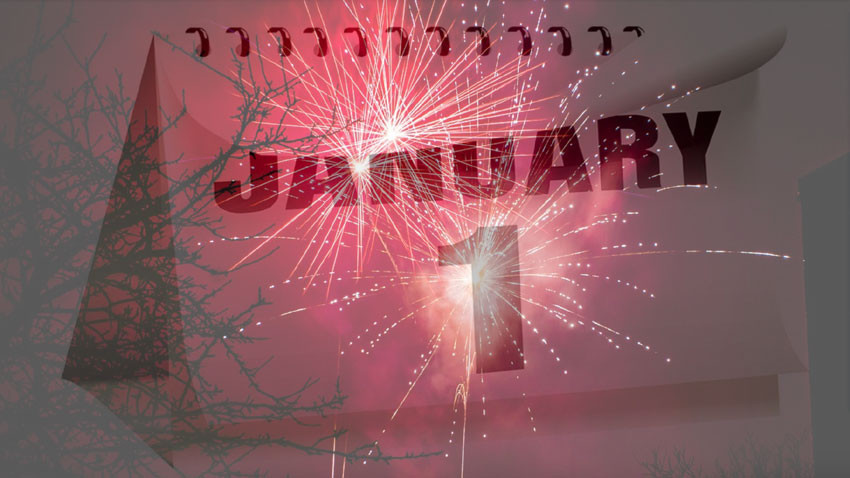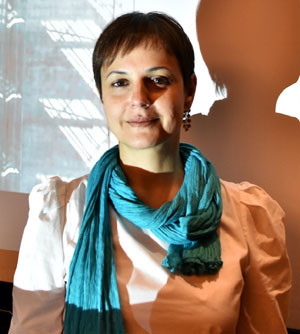
We all make New Year’s resolutions to change our lives, but the new beginning we all promise ourselves never seems to “begin”. And instead of giving up unhealthy food, or smoking, instead of finding a new job, or going on an exotic holiday, we go on just as we have always done, dragging along with us our bad habits, laziness and frustrations.
One in four New Year’s resolutions gets broken in the first two weeks, many of the good ideas stretch over the next six months, and we keep no more than 8 percent of the resolutions we have made. Yet we all want to change this and have our dreams come true.
Coaching expert Dobroslava Mircheva says there are ways we can avoid the traditional pitfalls and give our New Year’s resolutions a chance:
 “The reason we fail is that the promises we make ourselves are not very different from the fortune slips in the New Year’s banitsa. To stop smoking, to go on a diet, to find a new job, they are all nice things to wish for, but do you really have it in you to make them happen?”
“The reason we fail is that the promises we make ourselves are not very different from the fortune slips in the New Year’s banitsa. To stop smoking, to go on a diet, to find a new job, they are all nice things to wish for, but do you really have it in you to make them happen?”
As a matter of fact it is no easy thing getting rid of a bad habit, and attaining the goal we have set out to pursue, because we lack the motivation for change. The lack of motivation goes hand in hand with laziness, and we often focus on the things we don’t want, and in such cases it is difficult to have the willpower to do what it takes. Still, it is not impossible to keep our New Year’s resolutions, and these four steps can help.
“There are quite a few components that can help us keep our resolutions,” Dobroslava Mircheva says. “The first one is to create a clear vision of how our lives will change once we have attained our goal. The second one is to be clear about the real reasons why we want this change. Thirdly, it is also very important to have daily contact with the target, with the positive picture we have conjured up in our heads, and to take small steps leading up to it. And the fourth and final step – to create new habits and raise standards in the sphere in question. If we take, for example, a widespread resolution – to go on a diet – and transform it into a clear vision of our own selves, as someone with a light tread, wearing the kind of clothes we love, and give it a personal reason – to boost our self-confidence socially, to have better control of our own lives etc., then the resolution becomes so much more realistic and attractive.”
Setting a deadline is one more step that will take us closer to our target, and it too is part of success and self-knowledge, adds Dobroslava Mircheva.
“Change is like planning for a long journey and there is no way we can reach our destination unless we know the starting point and the means of transportation. Self-knowledge is the first step if we want to know what motivates us and why we want to take a step forward in that particular sphere. Self-knowledge is what can help us find the source of our motivation and the forces inside us that keep our eyes on the target whatever may be happening along the way. So that when we come across difficulties we can go back to our motivation and be able to mobilize our energy – and even if we have made a mistake, to overcome it.”
The first day of the new year is just a date symbolizing a new beginning, and we should wake up every day as if it were 1 January – thinking about the little thing we can do today that will bring us closer to our goal, Dobroslava Mircheva says. That is the only way we can affect the desired change – not the kind of change that will be here today and gone tomorrow, but a lasting and genuine change that will transform our lives.
English: Milena Daynova
The year 2024 was marked by political instability and confrontation - not so much over ideas for solving Bulgaria's long-standing governance puzzle, but rather over personal egos and individual agendas. This turbulent year shaped the political landscape,..
The clock on the facade of the State Puppet Theatre in Stara Zagora has long been a symbol of the city. It was set in motion in 1977 and is unique on the Balkan Peninsula. The theatre recently shared details about the clock on its Facebook page after..
"Every day, we should think about peace and the messages that politicians send,” journalist Tsvetana Paskaleva, who has been living in Armenia for 30 years, says. "The situation around us and in neighbouring countries is unstable and..
On 25 January 1935, Tsar Boris III signed the decree establishing the Bulgarian National Radio. The document, which officially marked the beginning of..
The Federation of European Carnival Cities has declared Pernik a global center of masquerade traditions. 16 years ago, Prenik was named the European..

+359 2 9336 661
